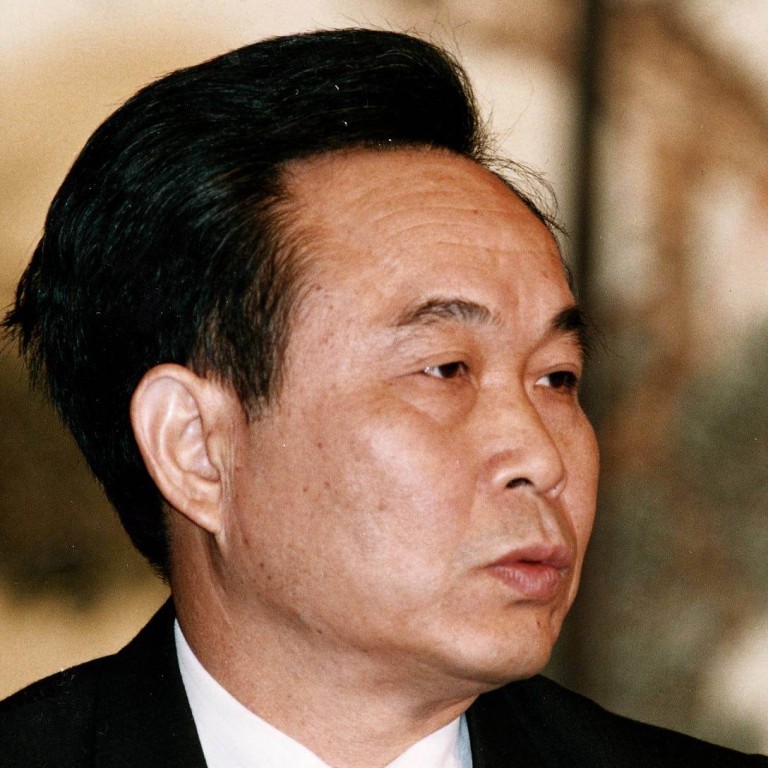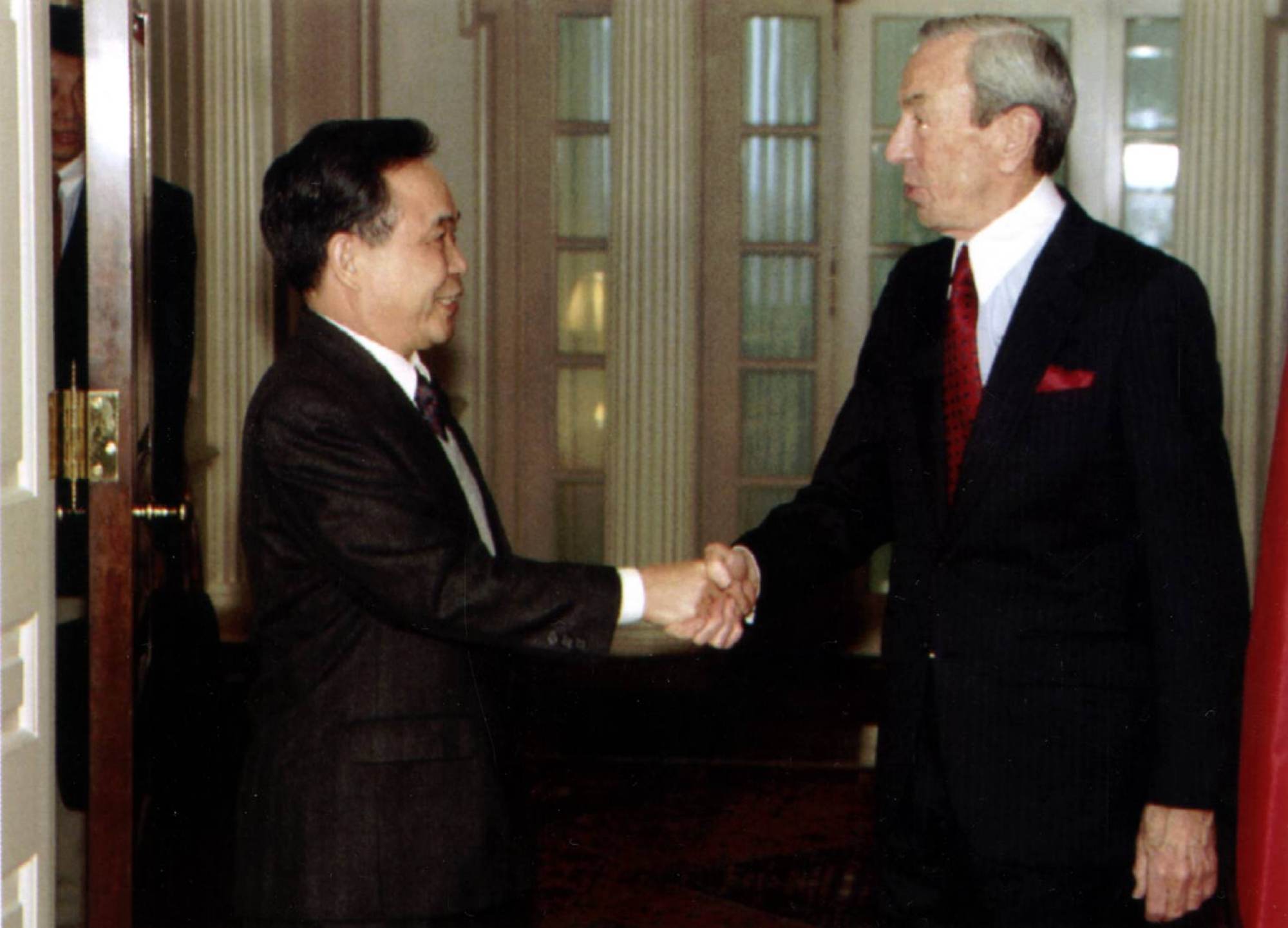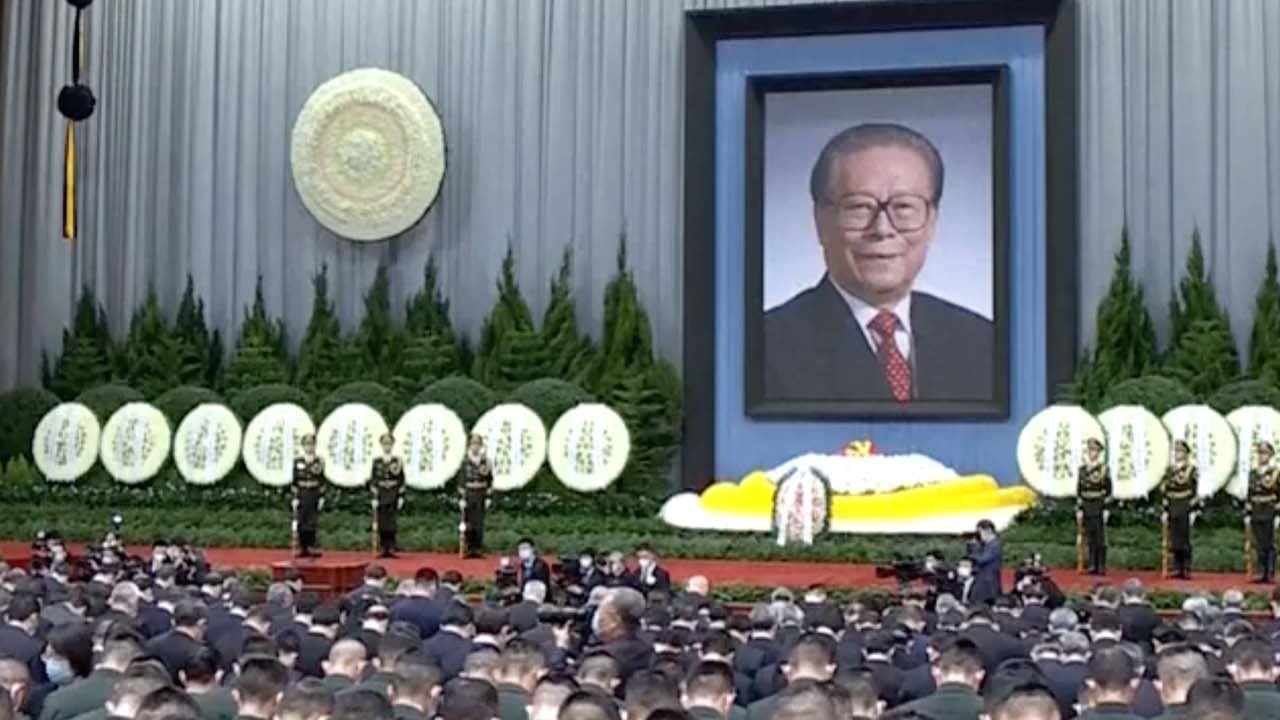
Jiang Zemin paved the way for China’s rise. He was helped by diplomats like Liu Huaqiu
- President Xi Jinping praised the former Chinese leader’s ‘extraordinary courage’ in ‘diplomatic struggles’ with America
- A key player in handling US affairs after the Tiananmen crackdown was foreign policy aide Liu, who died last month at 83
Hailed as a “great statesman” and “strategist” who navigated China’s rise through sanctions and isolation in the 1990s and early 2000s, Jiang’s mentor was Deng Xiaoping.
But he also owed much to the support of top foreign policy aides like Liu Huaqiu for his diplomatic accomplishments.
Liu, a veteran diplomat and the first director of the central foreign affairs office, played a key role dealing with the US in the tumultuous decade after the bloody 1989 crackdown, including during the third Taiwan Strait crisis. He died last month at 83.
Liu graduated as an English major from China’s Foreign Affairs College in Beijing and joined the foreign service in 1965, though his career was interrupted by the Cultural Revolution soon after.
Fast-forward to the weeks after Tiananmen, and a 50-year-old Liu became the youngest deputy foreign minister seen in decades, responsible for US and Oceanic affairs.
One of his first tasks was to deal with the diplomatic row over dissidents Fang Lizhi, an astrophysics professor, and his wife, who had taken refuge at the US embassy in Beijing the day after the June 4 crackdown. It took 12 months of negotiation before the couple – seen by Beijing as “black hands” behind the student-led pro-democracy protests – were transferred to the US on an American military plane.

Four years later, Liu was also involved in tense negotiations for the release of another high-profile dissident, Wei Jingsheng.
Those negotiations saw then-US secretary of state Warren Christopher travel to China to meet premier Li Peng – derided as the “butcher of Beijing” for his role in the Tiananmen crackdown – in what an American official later described as “the worst diplomatic meeting” he had attended in 30 years. Li apparently gave Christopher a dressing down, and Jiang attempted to ease the situation the next day, saying that “In order to become friends, we have to clash.”
Liu – seen as a protégé of Li – was said to have been regarded as a skilled negotiator and hardliner by his American counterparts. As one of Beijing’s foremost experts on US affairs, Liu travelled to the United States more than 20 times during his career, including at the height of tensions across the Taiwan Strait in 1996 at the invitation of then-US national security adviser Anthony Lake.
He arrived in the US as China was firing ballistic missiles into the waters around Taiwan – a move seen as retaliation for US leader Bill Clinton’s decision the previous year to allow Taiwanese president Lee Teng-hui to visit America.
Jiang Zemin: the president who took China from Tiananmen pariah to rising power
During talks at the State Department with Christopher, Lake and US defence chief William Perry, Liu was warned of “grave consequences” – code for a military response – should Chinese weapons strike Taiwan.
But Liu, who had a reputation for bluster, did not flinch, according to American journalist Patrick Tyler. Liu told the US officials that Beijing would not tolerate external interference, insisted the missile drills were routine and urged the United States not to overreact.
Like Jiang, it could also be said that Liu showed “extraordinary courage” in his dealings with the United States, though his career was largely overshadowed by Qian Qichen. Qian was a dominant figure in the country’s foreign policy decision-making from 1993, when he became vice-premier. Liu was moved to less prominent roles after he lost the race to Tang Jiaxuan to replace Qian as foreign minister in 1998.
Qian’s memoir, published after he retired in 2003, skips any mention of Liu’s 1996 visit to the US or his role in the Taiwan crisis – one of the most dangerous moments in US-China relations in decades.


